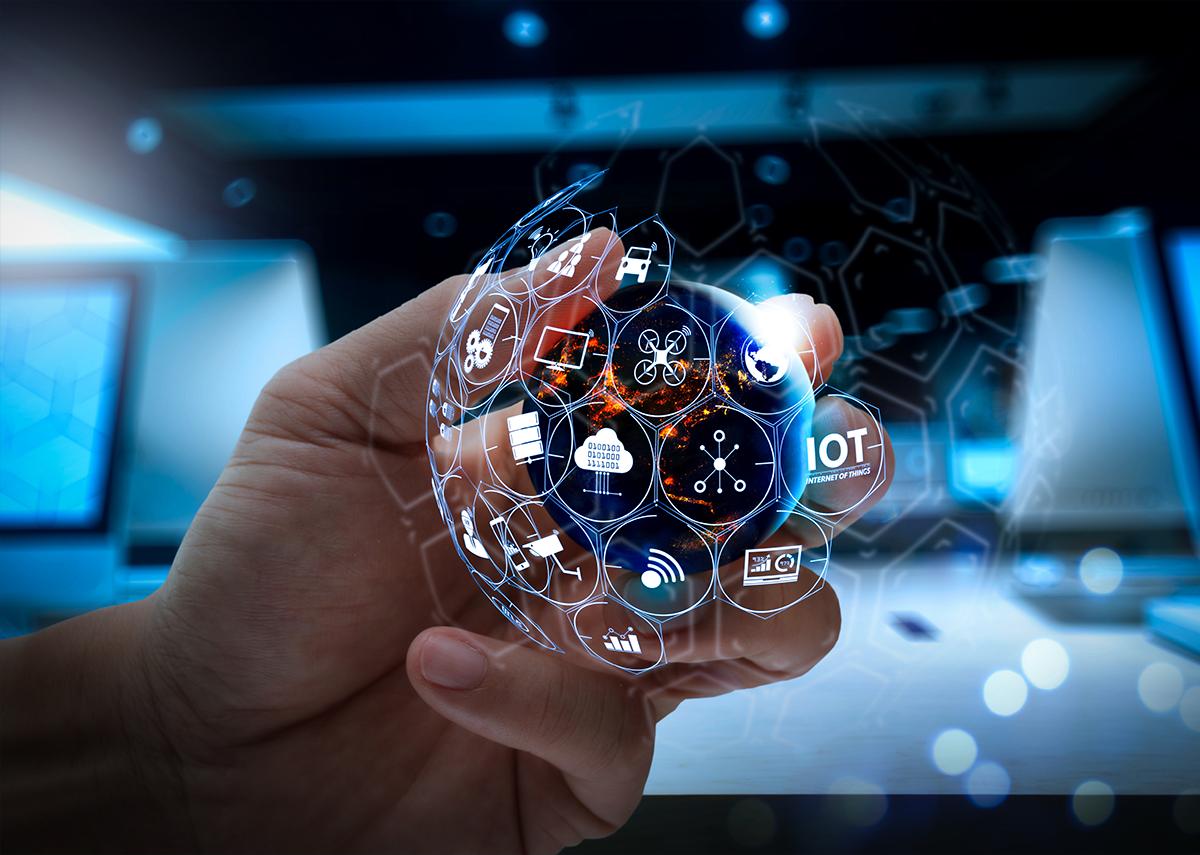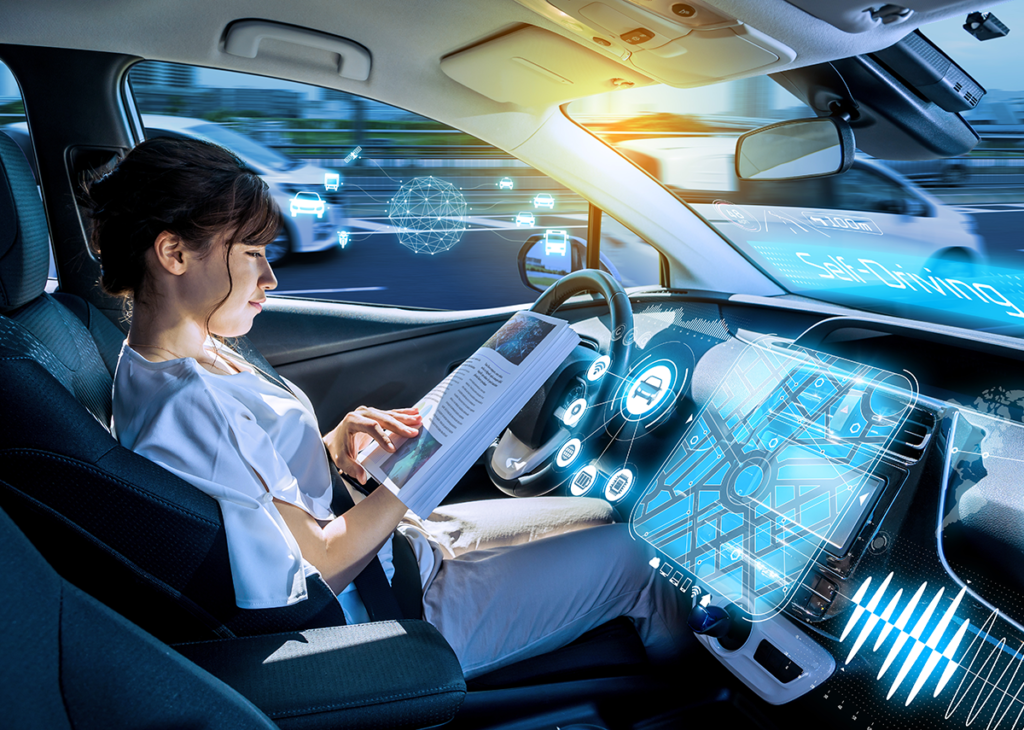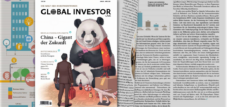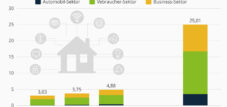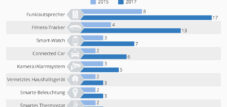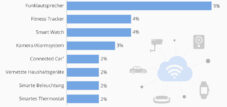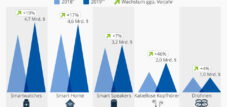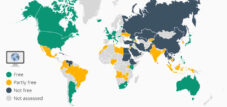Internet of Things – Endless possibilities
Language selection 📢
Published on: April 27, 2021 / update from: April 27, 2021 - Author: Konrad Wolfenstein
The Internet of Things opens up new perspectives for companies and investors - even if it is still uncertain how it will develop.
The Internet of Things has been capturing people's imaginations for some time now. Not without reason, because the “Internet of Things” (IoT) can have as serious an impact on the economy and our private lives as the Internet recently did. In the IoT, devices and systems are connected to one another so that they can communicate barrier-free and automatically and exchange data. Concepts such as artificial intelligence (AI), autonomous driving, networked shopping with mobile, cashless payment or smart home applications for apartments and houses; all of them are unthinkable without the IoT. The technology is not limited to electronic objects; For example, people could also be equipped with medical chips that digitally record blood pressure, pulse or blood sugar levels and send them to external software for analysis.
This article has already been published in GLOBAL INVESTOR, the specialist magazine for global business, trends and investment funds: Internet of Things
The new 5G mobile communications standard makes the IoT possible. It promises data rates of up to 20 gigabits per second (Gbit/s) - LTE has a maximum of one Gbit/s - as well as higher frequency capacities and data throughputs. This is the only way IoT systems can communicate smoothly with each other and technologies such as autonomous driving can be implemented safely. Another advantage of 5G over conventional LTE technology is its lower energy consumption, which makes the use of IoT systems on the nanoscale conceivable. 5G paves the way for IoT, which will help infrastructure providers such as telecommunications companies and other service providers achieve new growth.
More and more devices are already being networked with each other, whether in companies to intensify automated production or in private households in smart homes to efficiently control power consumption, electrical engineering or the vacuum cleaner that vacuums when the residents are not at home. The IoT is already having a significant impact on companies and private users. That's why many expect the development of new business models - and at the same time a renaissance of older approaches.
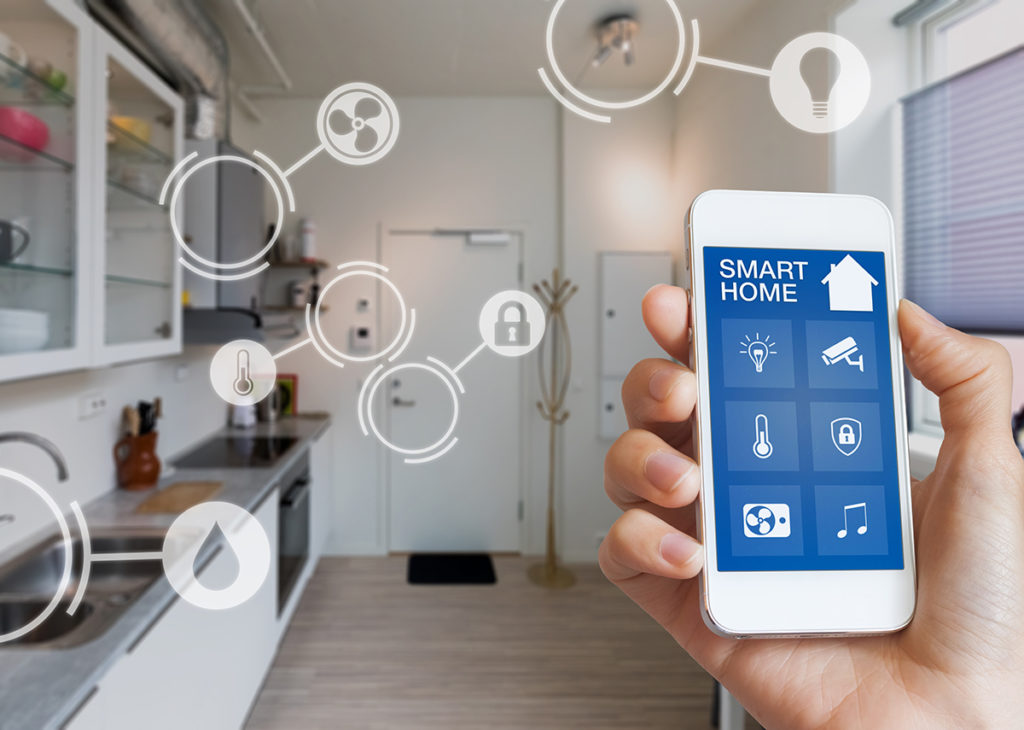
Smarthome technology interface on smartphone app screen with Augmented Reality (AR) – view of Internet of Things (IOT) connected objects inside the apartment – Image: NicoElNino|Shutterstock.com
AI is particularly important here; After all, only autonomously operating, self-learning structures enable the efficient processing of the huge volume of data in the IoT. Human labor will no longer be sufficient to control and organize the extremely complex and immeasurably large data network on which the IoT is based.
As with all activities, workflows and production processes that rely on online services, security is also crucial in the IoT when it comes to successful implementation in companies and acceptance among the population. It is therefore important that the topic is given high priority right from the start.
The IoT does not reduce the risk for companies of being hacked through vulnerabilities in their applications or through purchased software, DoS attacks, or the download of malware. On the contrary, because the billions of connected devices also mean billions of potential security gaps for users. There will be many of them, as estimates suggest that there will be over 50 billion system participants in the IoT by 2020. In addition, cloud-based storage and Software-as-a-Service (SaaS) solutions are becoming more important to secure large amounts of data. This technology inadvertently provides gaps for manipulation, so security engineers must place utmost importance on securing this area.
In addition, information technology is currently developing so quickly that security systems cannot keep up. This is why there are no standards, which creates gateways for unauthorized third parties. However, experts inside and outside the company have already recognized the danger. Countless measures are intended to counteract this and in this way ensure a safer IoT. This includes components such as always encrypted, cryptographic and therefore forgery-proof authentication of IoT participants, current security systems and ongoing analyzes that uncover and eliminate weak points and security gaps in the IoT. Companies that specialize in such services can expect continually growing demand in the coming years.
Detached from future business models, traditional industries also benefit from IoT. This development is not new and began with the increasing use of robots in manufacturing. In the course of reshoring - in contrast to offshoring - more and more companies have withdrawn production capacity from low-wage countries such as China since the 1990s. The idea behind it: The more automated companies are, the lower their personnel costs are and the lower the advantages of cheaply available labor in other countries. This makes manufacturing in Germany interesting again for these companies, because in addition to the reduced personnel costs, domestic manufacturing has many advantages; some of them are direct contact, short distances, highly qualified staff and no language barriers. For this reason, companies from sectors as diverse as electrical engineering, mechanical engineering and the consumer goods industry have now started to expand their capacities in this country or open new locations. One example is Bosch's new, billion-euro investment in a chip factory in Dresden.
In an international comparison, Germany is very well positioned when it comes to robotics and, with a density of 31 robots per 1,000 employees, is now in third place worldwide behind South Korea with 63 and Singapore with 49. The USA, on the other hand, only has 19 robots per 1,000 employees. The trend of reshoring will increase with the spread of the IoT, because automation and the use of robots in smart factories go hand in hand with the networking of the physical and digital components of this system. It is therefore worthwhile for investors to look at local companies that are successful in this area. Your experience should be useful when implementing other IoT projects in the future.
But even independently of robots and smart factories, the IoT is likely to transform our entire lives. It is used to speed up economic work processes and it changes our private lives by making many things easier and more comfortable. That's why the application areas of the technology are so diverse; They affect almost everything that people do professionally and privately.
Which industries or companies ultimately benefit from IoT depends on the extent to which they can use the technology for their purposes in order to create added value for them. In principle, every company, regardless of the industry, must integrate at least individual elements of the IoT in order to be competitive in the future. It is not yet clear who that will be. However, it is foreseeable that German companies will have to hurry if they do not want to lose touch with their American or Asian competitors, where the topic of IoT has long been given a much higher priority.
Anyone who wants to bet on the IoT trend now should not analyze the IoT innovation and adaptability of companies and industries, but instead look at the sectors that benefit directly from the technology. Similar to the famous example of the gold prospectors and the traders who supplied them, who ultimately benefited the most from the boom, the focus should therefore be on the protagonists who ensure that the IoT infrastructure functions smoothly. The focus here is particularly on the following areas: providers of storage solutions, service providers, software developers, security software, IoT hardware, payment systems as well as service technicians and consultants.
The boom in online services, Industry 4.0 and networked systems is already leading to a gigantic volume of data being generated and transmitted every day. Currently, an estimated 2.5 billion gigabytes (GB) of data are produced per day. About 80 percent of them are unorganized; They are created as images, log files, or chat protocols that first have to be processed so that they can be analyzed. IoT is likely to multiply this data volume. That's why we're looking for high-performance storage solutions in which data can be stored securely and accessed quickly. Providers who have sufficient capacity in Germany have an advantage here, especially in times of hacks and the growing fear of data theft. The short distances guarantee quick access and security against external access by unauthorized persons or foreign governments, which is not the case with foreign servers.
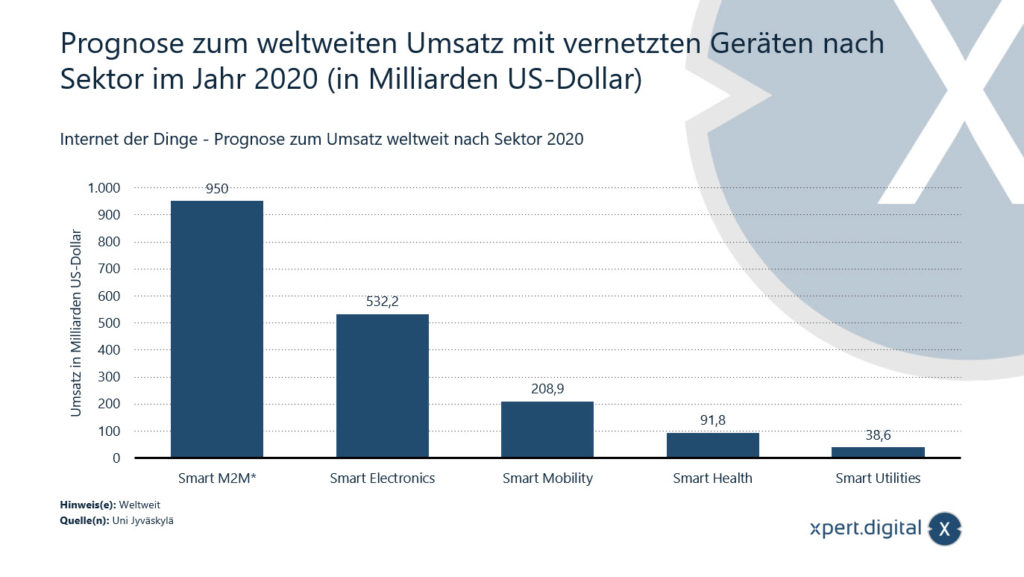
Forecast of global connected device sales by sector in 2020 (in billion US dollars) – Image: Xpert.Digital
The statistics show a forecast for global sales of connected devices by sector in 2020. For 2020, it was forecast that a sales volume of around $532 billion could be achieved worldwide with smart electrical devices.
Regardless of where they are based, operators will benefit from cloud storage and SaaS solutions because one of the characteristics of IoT is its global nature. If the systems access data for their communication mobile and from anywhere, they can do this via a cloud system, which is fed centrally with the required information. An e-commerce giant like Amazon has long recognized this: the company's cloud solutions now contribute a growing share of the group's sales. But here too, providers must be able to guarantee comprehensive security in order to gain the trust of customers.
But the technology wouldn't stand a chance if there weren't powerful connections to transmit it. The transmission rates required for the coming IoT generation can only be guaranteed by the most modern mobile data lines such as the new 5G technology. Compared to LTE, 5G is many times faster and ensures that communication between autonomous units via the IoT can take place in real time. Telecommunications companies with the necessary infrastructure are therefore among the beneficiaries of the development; no matter who or what prevails in the end.
The wide variety of IoT-based applications requires many qualified programmers and software solution providers. Whether national or international, companies that specialize in creating scalable solutions to these needs are likely to soon see booming demand. Due to the many requirements, it is likely that new providers will make their mark on the market. Proximity to customers is crucial, as is the potential for recruiting qualified young talent. That is why specialists from Germany can also bring countries such as the USA, India or China into the focus of investors who want to invest capital in this area. AI developers can also expect flourishing business, after all it will be up to the AI to read out the huge amounts of data from the IoT, process it and convert it into the right commands.
With networking, the risk of misuse and manipulation by unauthorized third parties also increases. Even though providers of SaaS and cloud solutions as well as data storage and pipelines do a lot to protect their customers and their data, the need for additional security precautions will increase significantly. Because such solutions can be scaled well, developers have a good chance of dominating the market in their segments. Potential investors need to identify favorites early on.
There is a great need for digital infrastructure, but also for technology providers who can equip the communicating units with their hardware. These include, for example, RFID (radio-frequency identification) or other micro-systems that enable the devices to be networked. If one assumes that at some point even the smallest units in the nano range will become part of the IoT, specialists are in demand for the production of microscopically small data transmitters or radio chips. Since the demand for these products will run into the billions, successful providers should be prepared for high and secure sales growth.
The IoT is so effective primarily because the systems contact each other, negotiate and conclude contracts autonomously without human intervention. Blockchain-based systems such as cryptocurrencies are suitable for processing contracts and paying for services. It is not Bitcoin, with its range of applications that is largely limited to payment processing, but rather systems like Ethereum or Neo, which, in addition to the pure payment function, use so-called smart contracts to enable market participants to independently conclude contracts with each other, paving the way for the IoT. Therefore, the end of cryptocurrencies after the boom at the end of 2017 and the subsequent crash may have been declared prematurely.
The predominant feature of the IoT is the autonomy of the devices. But in the future there will also be people who control, maintain and replace the systems or advise companies on which system solution is best suited for them. The need for providers who specialize in these services is therefore likely to increase.
Companies and investors have many opportunities to secure existing business models, develop new ones and identify lucrative forms of investment.
will fundamentally change the way we think about work and production processes and the way we are used to living Whether you are an entrepreneur, a private individual or an investor – it is time to look for the opportunities that are available.
Why Xpert.Digital?
We have many years of experience in digitalization. Our Digital Innovation Hub is one of the first of the hour for logistics and photovoltaics . Smart Grid and AI are no strangers to us . We look at things comprehensively and develop solutions and concepts from this. Mainly in the areas of e-commerce, beauty, fashion, mechanical engineering, logistics, intralogistics and photovoltaics.
I would be happy to serve as your personal advisor.
You can contact me by filling out the contact form below or simply call me on +49 89 89 674 804 (Munich) .
I'm looking forward to our joint project.
Xpert.Digital – Konrad Wolfenstein
Xpert.Digital is a hub for industry with a focus on digitalization, mechanical engineering, logistics/intralogistics and photovoltaics.
With our 360° business development solution, we support well-known companies from new business to after sales.
Market intelligence, smarketing, marketing automation, content development, PR, mail campaigns, personalized social media and lead nurturing are part of our digital tools.
You can find out more at: www.xpert.digital – www.xpert.solar – www.xpert.plus



